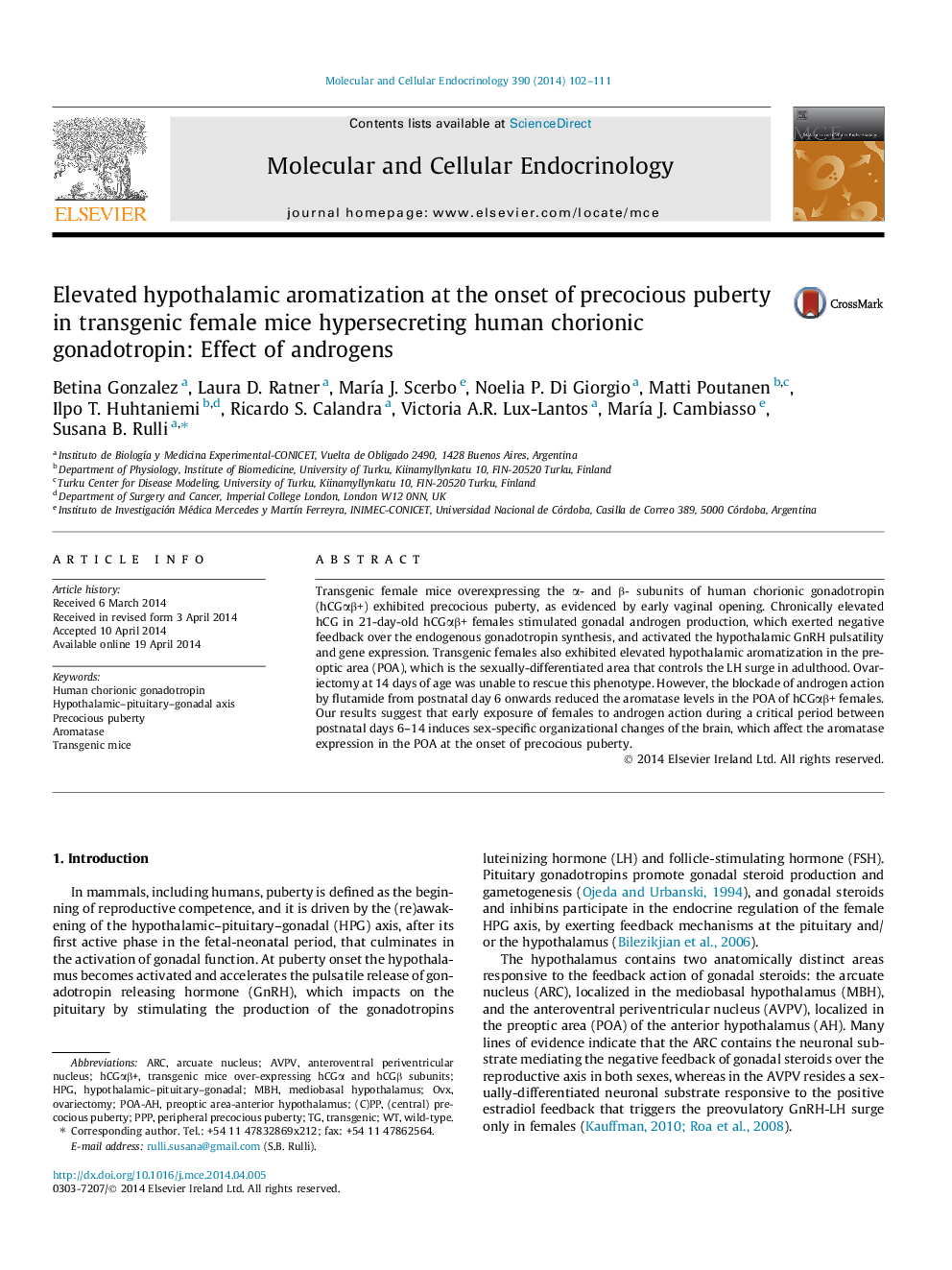| Article ID | Journal | Published Year | Pages | File Type |
|---|---|---|---|---|
| 2196039 | Molecular and Cellular Endocrinology | 2014 | 10 Pages |
•Transgenic female mice for hCG exhibit elevated androgens and precocious puberty.•Aromatase levels are increased at the hypothalamic preoptic area of transgenics.•Castration at 14 days of age is unable to reduce aromatase at peripuberty.•Flutamide from 6 days of age reduces aromatase levels at peripuberty.•Early androgens induce changes on the sex-specific organization of the female brain.
Transgenic female mice overexpressing the α- and β- subunits of human chorionic gonadotropin (hCGαβ+) exhibited precocious puberty, as evidenced by early vaginal opening. Chronically elevated hCG in 21-day-old hCGαβ+ females stimulated gonadal androgen production, which exerted negative feedback over the endogenous gonadotropin synthesis, and activated the hypothalamic GnRH pulsatility and gene expression. Transgenic females also exhibited elevated hypothalamic aromatization in the preoptic area (POA), which is the sexually-differentiated area that controls the LH surge in adulthood. Ovariectomy at 14 days of age was unable to rescue this phenotype. However, the blockade of androgen action by flutamide from postnatal day 6 onwards reduced the aromatase levels in the POA of hCGαβ+ females. Our results suggest that early exposure of females to androgen action during a critical period between postnatal days 6–14 induces sex-specific organizational changes of the brain, which affect the aromatase expression in the POA at the onset of precocious puberty.
